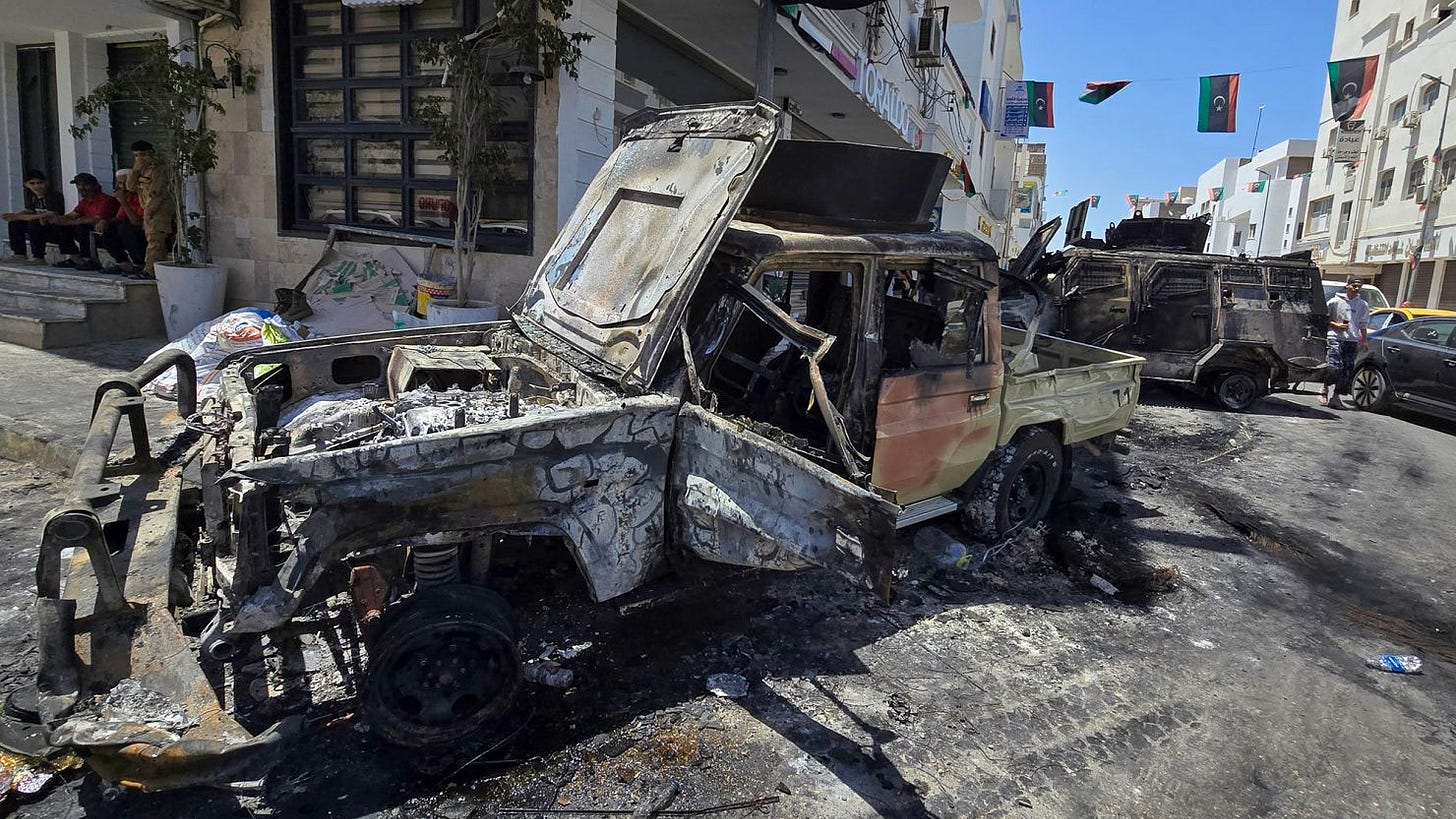The Third Libyan Civil War? Why the Country’s Divisions Are Deepening
Recent clashes and political crises suggest that Libya’s hostilities are far from over.

Last May, clashes erupted in the Libyan capital of Tripoli, marking the highest levels of brutality in the country in years.
The violence broke out between the Stability Support Apparatus (SSA) and the 444th Brigade following the assassination of SSA leader Abdul Ghani al-Kikli.
Although a ceasefire was negotiated by the Government of National Unity (GNU), led by Prime Minister Abdul Hamid Dbeibeh, mass protests targeting the GNU over its perceived ineffectiveness prompted three ministers to step down from office.
The May clashes are indicative of the deep divisions that have fragmented Libya since the Arab Spring.
Following the downfall of Muammar Gaddafi, Tripoli descended into civil war between the Government of National Accord (GNA), based in the west, and the House of Representatives (HoR) and the Libyan National Army (LNA), based in the east in Benghazi and led by General Khalifa Haftar.
After a failed LNA incursion into Tripoli in 2019, a United Nations ceasefire was secured in 2020, paving the way for the GNU and plans for elections in 2021.
The elections have yet to take place due to delays stemming from longstanding disputes between various Libyan militias and political parties.
A String of Crises
The May clashes were just the third crisis in the past year that has shaken the core of Libyan governance.
The first occurred last August over the Central Bank of Libya (CBL). Despite being based in the GNU-controlled west, the CBL oversees the management of Libya’s oil funds. Given that many of the country’s oil fields are in the HoR-controlled east, close ties developed between Haftar and the CBL head, Sadiq al-Qabir. In response, Dbeibah dismissed Qabir, prompting Haftar-aligned militias to quickly surround the CBL headquarters and halt oil production.
The ensuing crisis, resolved through UN-led talks in September, led to a paralysis of banking services and unpaid salaries.
More recently, a dispute arose over the National Oil Corporation (NOC). The Benghazi-based government announced on May 29 that it might declare a force majeure on oil exports and oil fields due to “repeated assaults on the NOC” by the GNU. The eastern regime also suggested relocating the NOC to territories under its control, such as Ras Lanuf or Brega.
The GNU has denied these accusations, insisting that the NOC remains operational.
As of the writing of this article, the standoff remains unresolved.
More Danger Ahead
Both incidents are indicative of weak central state control in a militia-dominated political landscape. If no meaningful pressure is applied to all involved parties, Libya’s fragmentation will continue.
Despite its efforts, the UN Support Mission in Libya (UNSMIL) has proven ineffective in navigating hostilities across the country.
The ongoing dispute over the NOC could serve as a turning point for post-conflict Libya. With oil being the country’s most vital resource, all involved groups are vying for control of this valuable sector.
Without any brokered resolution over this highly contested industry, further hostilities may emerge, potentially plunging Libya back into warfare.




